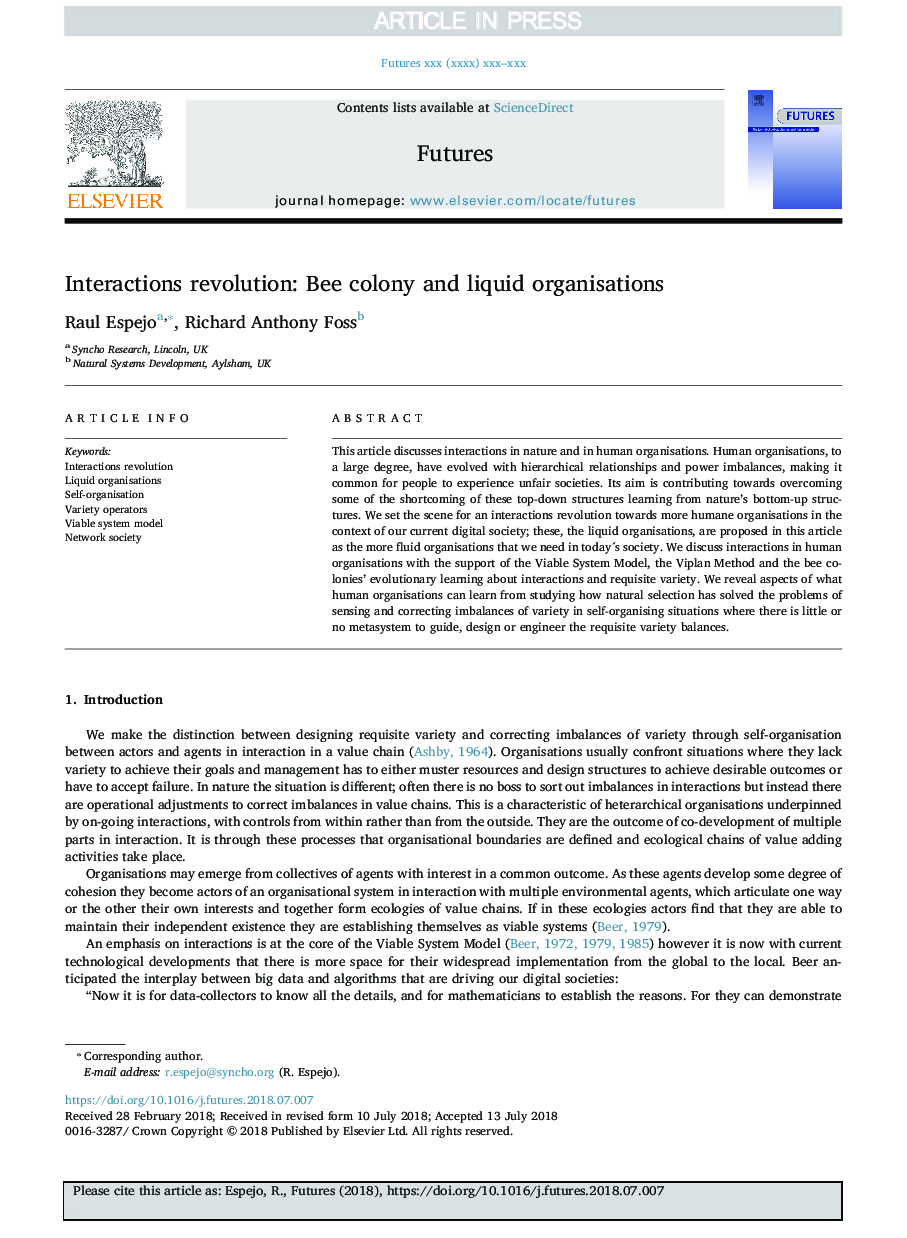| Article ID | Journal | Published Year | Pages | File Type |
|---|---|---|---|---|
| 10153955 | Futures | 2018 | 9 Pages |
Abstract
This article discusses interactions in nature and in human organisations. Human organisations, to a large degree, have evolved with hierarchical relationships and power imbalances, making it common for people to experience unfair societies. Its aim is contributing towards overcoming some of the shortcoming of these top-down structures learning from nature's bottom-up structures. We set the scene for an interactions revolution towards more humane organisations in the context of our current digital society; these, the liquid organisations, are proposed in this article as the more fluid organisations that we need in today´s society. We discuss interactions in human organisations with the support of the Viable System Model, the Viplan Method and the bee colonies' evolutionary learning about interactions and requisite variety. We reveal aspects of what human organisations can learn from studying how natural selection has solved the problems of sensing and correcting imbalances of variety in self-organising situations where there is little or no metasystem to guide, design or engineer the requisite variety balances.
Related Topics
Social Sciences and Humanities
Business, Management and Accounting
Business and International Management
Authors
Raul Espejo, Richard Anthony Foss,
